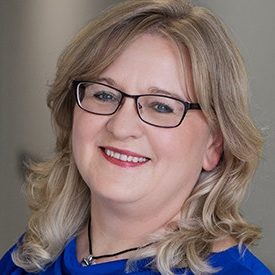Master of Health Leadership and Management (Extension) / Master of Public Health
- Commencing Terms
- Term 1, 2 & 3
- Duration
- 2 Year(s)
- Delivery Mode
- Face-to-face (includes blended), Online
- Campus
-
Kensington
- Codes
- Program code 9057
- CRICOS code 089844J
-
2026 Indicative first year full fee
- $39,000*
-
2026 Indicative full fee to complete degree
- $80,000*
-
2026 Indicative first year full fee
- $60,500*
-
2026 Indicative full fee to complete degree
- $126,000*

Application closures for 2026
International applications for all undergraduate programs, as well as postgraduate programs offered by the faculties of Arts, Design & Architecture, Engineering (excluding Master of Information Technology and associated programs) and Science are now closed to New Overseas Student Commencement (NOSC) for 2026 intakes.
Postgraduate programs offered by the Business School and the faculties of Law & Justice and Medicine & Health remain open. Master of Information Technology (and associated programs) also remain open.
- Overview
- Entry requirements
- What will I study?
- Future careers
- How to apply
- Fees & Scholarships
Overview
The Master of Public Health/Master of Health Leadership and Management (Extension) double degree will enable you to specialise in both public health and health management and to develop research skills in health management. You will gain the advanced disciplinary knowledge and skills to undertake population health and health services management roles in government, community and health service settings in Australia and internationally. This degree also includes a research project which will cultivate your critical thinking and communication skills as you explore contemporary health management issues.
By undertaking this combination of degrees you will come away with a sophisticated understanding of the multidisciplinary knowledge required for public health and health management. This includes epidemiology, biostatistics, social determinants of health, population-targeted health research methods, leadership and workforce management, quality improvement, and the design, implementation and evaluation of health programs and policy. You will acquire the specialised skills needed for health management research and evidence-based professional practice and leadership across a range of contexts.
Key features
- Accredited program
This Master of Health Leadership and Management is accredited by the Australasian College of Health Service Management (ACHSM) and the Royal Australasian College of Medical Administrators (RACMA). It also provides the core competencies required for individuals wishing to apply for RACMA Fellowship.
- Research extension options
Add an extension to one of your master’s degrees to extend your knowledge and skills in health services or public health research. You’ll complete additional research methodology courses and/or an advanced research project on a related topic. You can design your program to be eligible to apply to pursue a PhD to further advance your career.
- Industry relevant programs
Our programs were designed to be relevant to the workplace, with many opportunities to apply theoretical knowledge to practice. One such opportunity is our internship program, where you’ll gain practical experience in relevant health organisations. We offer a range of domestic and international internship placements in Australia, Asia and the Pacific.
- Flexible delivery
Complete your study from anywhere in the world. This degree provides flexible learning options so you can complete the degree according to your needs and commitments. Courses can be taken online or face-to-face, full-time or part-time. Our online learning spaces facilitate collaborative learning so you can connect with fellow students and course convenors in real-time.
Why study at UNSW?
Study Australasia’s first Master of Health Leadership and Management
For more than 60 years, this program has equipped students with the knowledge and skills required to respond to the challenges faced by health managers and leaders.
Tailor your public health degree to your interests
Tailor your degree to suit your goals through a broad program of study or a focused public health specialisation. We offer nine specialisations in areas where we have extensive expertise, including:
- Aboriginal Health & Wellbeing
- Epidemiology
- Health Economic Evaluation
- Health Promotion
- Infectious Diseases Control
- International Health
- Primary Health Care
- Public Security
- Social Research
We're a global leader in research and impact
Recognised for our excellence, we rank #20 globally for public health research (Shanghai Ranking's Global Ranking of Academic Subjects (GRAS), 2024). Our research addresses both existing and emerging complex health challenges in Australia and across the world. By leveraging cross-disciplinary partnerships, innovation and a health system-level approach, we strive to improve health outcomes for all.
Join a sector-leading population health community
UNSW's Medicine & Health faculty is ranked #54 globally for life sciences and medicine (QS World University Rankings by Subject, 2025) and is creating the leaders of tomorrow. Join a community that’s playing a key role in enhancing population health and healthcare systems. This program is delivered by the School of Population Health – a dynamic, international community of staff, alumni, practitioners and students. Our multi-disciplinary teaching and research staff have research and practitioner experience in local, national and international settings. Research and collaboration opportunities are available for students in our internationally recognised research centres and institutes. You will be part of a community involved in translating ground-breaking research into disease prevention and response strategies and informing health policy.
Build your professional network
Join an engaged cohort of like-minded students and a successful alumni community. Our graduates currently hold leadership roles in public and private services spanning ministries/departments of health, local health districts, public service roles relevant to social determinants of health, non-government organisations across Australia and around the world, in addition to graduates who bring population health expertise to their clinical work.
Want to see more from UNSW Medicine and Health?
Entry requirements
There are two pathways for entry and a third exceptional pathway. These include:
Pathway 1
Applicants must have both:
a) A three year undergraduate degree in any field of study. See the list of relevant fields of study below.
b) Two years of full-time professional or volunteer experience in a relevant field. The professional experience may include experience in health or public health services acquired as part of a degree of four or more years' duration, e.g. MBBS, MD. Refer to the list of professional or volunteer experience below.
Pathway 2
Applicants must have at least one of the following:
a) An undergraduate degree plus an honours in a relevant field of study. See the list of relevant fields of study below.
b) A postgraduate degree in a relevant field of study. Refer to the list of relevant fields of study below.
Pathway 3
In exceptional circumstances, applications will be considered for entry when they have extensive professional health or public health experience but do not hold a relevant degree qualification. A minimum of five years full-time relevant professional experience is required and an interview with the School of Population Health may be conducted.
Relevant fields of study
Accepted areas of study include:
- medicine
- nursing
- allied health
- health sciences
- biomedical sciences
- dentistry
- social sciences
- social work
- psychology
- paramedicine
- environmental health
- health administration
- policy studies
- development studies
Professional or volunteer experience
Relevant professional experience includes:
- Roles in health (including allied health, medicine, nursing, oral health, public health, environmental health and psychology)
- Health service provision or health management roles in human services (e.g., social work, community development, service navigation, case management)
- Roles that involve working specifically on health-related activities or portfolios, such as health-focused positions in emergency services, management, research, engineering, law, science, mathematics and statistics, economics, journalism or policy.
Indigenous Alternative Entry Scheme
Aimed at redressing the imbalance of access for Aboriginal and Torres Strait Islander peoples to population health programs, this scheme provides entry to our postgraduate coursework degrees based on your interest in public health and relevant educational and/or professional experience.
English language requirements
You may be asked to provide evidence of your English proficiency to study at UNSW depending on your educational background and citizenship. English language skills are vitally important for coping with lectures, tutorials, assignments and examinations - this is why UNSW requires a minimum English language competency for enrolment.
If you’re completing an Australian Year 12 qualification (e.g. NSW HSC or equivalent), you do not need to provide anything extra to prove your proficiency. Your qualification will be used as evidence of your English proficiency.
If you do need to provide evidence of your English proficiency, this will be indicated in your application. You can prove this by providing evidence that you meet one or more of the following criteria:
- English language tests and university English courses
- Prior study in the medium of English
- Other qualifications
If you need to improve your English skills before you start your degree, UNSW College’s Academic English Programs are for you. The programs are suitable for various English levels and help you prepare for university studies and life in Australia.
For more details, visit the English Language Requirements page.
For entry into this program, you must have one of the following:
- A three-year undergraduate degree, plus, an honours or postgraduate degree, in a field relevant to public health or health management.
OR
- A three-year undergraduate degree in a field relevant to public health or health management, plus, two years full-time professional or volunteer experience. This may also include equivalent professional experience acquired as part of a degree of four or more years duration (e.g., MBBS, BMed, MD).
In exceptional circumstances, applicants with extensive relevant professional work experience (e.g., hospital-trained nurses, paramedics, Aboriginal health workers) may be considered. A minimum of five years full-time relevant professional experience is required and an interview with the School of Population Health may be conducted.
Relevant fields
Examples of relevant fields include, but are not restricted to:
- medicine
- nursing
- allied health
- health sciences
- biomedical sciences
- dentistry
- sociology
- behavioural and social sciences
- psychology
- marketing
- human services
- emergency services
- environmental health
- veterinary science
- health administration
- business
- management
- engineering
- law
- science
- mathematics and statistics
- economics
- policy studies
- development studies.
English language requirements
You may be asked to provide evidence of your English proficiency to study at UNSW depending on whether you are from an English-speaking background or non-English speaking background. English language skills are vitally important for coping with lectures, tutorials, assignments and examinations - this is why UNSW requires a minimum English language competency for enrolment.
If English is not your first language, you’ll need to provide proof of your English proficiency before you can be given an offer to study at UNSW. You can do this by providing evidence that you meet one or more of the following criteria:
- English language tests and university English courses
- Prior study in the medium of English
- Other qualifications
If you need to improve your English skills before you start your degree, UNSW College’s Academic English Programs are for you. The programs are suitable for various English levels and help you prepare for university studies and life in Australia.
For more details, visit the English Language Requirements page.
Check the specific English language requirements for this program
What will I study?
UNSW is introducing a new academic calendar from 2028.
We are moving to a new flex-semester calendar. What does this mean for your studies?
Program structure
The Master of Health Leadership and Management (Extension)/Master of Public Health can be completed in two years of full-time study or four years part-time. The program is made up of 16 courses total, including:
- eight core courses
- four elective courses
- additional electives which include a research project or research methodology course
-
- Health Promotion and Social Perspectives of Health
- Foundations in Public Health and Health Care Systems
- Foundations of Epidemiology
- Foundations of Biostatistics
- Strategy, Policy and Change
- Healthcare Economics and Financial Management
- Health Leadership and Workforce Management
- Clinical Governance and Risk Management
-
Please visit the program handbook to view the elective courses on offer.
Future careers
There’s strong demand in Australia and globally for professionals with specialised interdisciplinary skills in public health and health management. This dual degree enhances your career prospects as you’ll graduate with leadership skills underpinned by public health principles.
This dual degree can lead to a career in:
- government departments and ministries of health
- public health networks
- local area health services
- universities and research institutes
- international health policy and funding institutions
- non-governmental agencies
- mental health services
- indigenous health organisations
- health services general management
- health services c-suite roles
- government and non-government policy
- medical communications
- medical insurance management
- non-government health service management
- health economics
- health program management
- health care consultancy.
How to apply
Applications for domestic students (Australian citizens, Australian permanent residents, Australian permanent humanitarian visa holders and New Zealand citizens) are processed through the Universities Admissions Centre (UAC) Postgraduate.
Ready to start your application?
For most international students, applications are submitted via our Apply Online service. We encourage you to submit your completed application as early as possible to ensure it will be processed in time for your preferred term.
Some high-demand programs with limited places, may have an earlier application deadline or may have an earlier commencement date. For details, visit the international admissions information page.
Ready to start your application?
Fees & Scholarships
Commonwealth Supported Places
$10,000*
$20,000*
All places within this degree are Commonwealth supported. This means that if you receive an offer from UNSW Sydney as a domestic student, you will have a substantial proportion of your fees subsidised by the Australian government. Start your application today with our guide on how to apply.
*The indicative Commonwealth Supported Place (CSP) fees are an estimate based on the relevant student contribution band/s for a Commonwealth Supported Place undertaking a standard full-time load of 48 units of credit per year (1 Equivalent Full Time Student Load/1 EFTSL). To find out more about Commonwealth Supported Places visit Postgraduate Commonwealth Support.
Indicative fees are a guide only and have been calculated based on the typical enrolment patterns of students undertaking the degree/program. The indicative fee listed here is an estimate for tuition only and excludes non-tuition fees and charges. The amount you pay will vary depending on the calendar year of enrolment, the courses you select and whether your study load is more or less than 1 Equivalent Full Time Student Load (48 units of credit (UOC) per year).
You should not rely on indicative fees as fee increases are assessed when required and may exceed the indicative figures listed here. Actual fees are calculated on enrolment. More information on fees can be found at the UNSW fees website.
*Fees are subject to annual review by the University and may increase annually, with the new fees effective from the start of each calendar year. The indicative fees listed here are based on an estimated average and are for tuition only, other fees and charges are not included. The amount you pay will vary depending on the calendar year to enrol, the courses you select and whether your study load is more or less than 1 Equivalent Full Time Student Load (8 courses per year).
Indicative fees are a guide for comparison only based on current conditions and available data. You should not rely on indicative fees. More information on fees can be found at the UNSW fees website.
Indicative fees to complete the program have been calculated based on a percentage increase for every year of the program. Fee increases are assessed annually and may exceed the indicative figures listed here.
Indicative fees to complete the program include tuition plus an estimate of study-related costs of approximately $1,000 per year. To find out more about other costs, visit UNSW International.
Scholarships
At UNSW, we award over $83 million in scholarships each year. We pride ourselves on rewarding excellence and making university accessible to students from all walks of life. Whether you’re a domestic or international student, our range of scholarships, prizes and awards can support your journey.
Progress starts here – at a world-leading university

Top 20 Worldwide
UNSW is ranked #20 university in the world
QS World University Rankings, 2024–2026

Most Employable Graduates
Winner of the AFR Most Employable University Award seven years in a row
AFR Top100 Future Leaders Awards, 2020–2026

Australia's #1 for Innovation
Highest number of startups and spinouts from university-developed tech
SCOPR report, 2024





